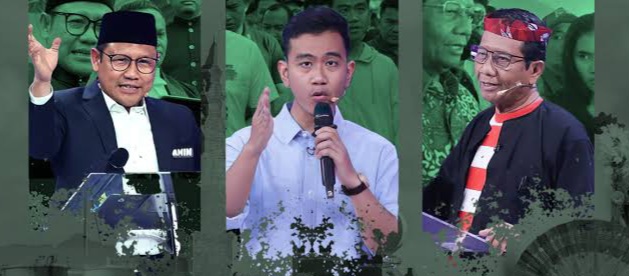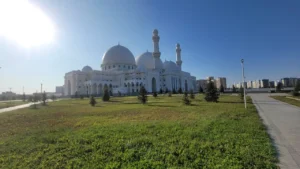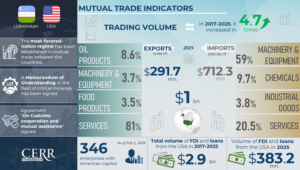An Analysis on 2nd VP Candidate Debate, Indonesia

The 2nd vice presidential candidate debate, held as part of a comprehensive series leading up to the impending Indonesian general elections, covered pivotal themes central to Indonesia’s socio-economic and environmental landscape.
The deliberations during Yesterday’s (January 21, 2024) debate delved into critical subjects such as natural resources, food security, carbon tax implications, environmental conservation, agrarian issues, and the preservation of traditional communities.
This discourse provided a platform for the candidates to articulate their visions and policies regarding the nation’s development, emphasizing the significance of responsible resource management, environmental sustainability, and inclusive approaches to address the diverse challenges faced by Indonesia.
Vice presidential candidate Muhaimin Iskandar’s focus
Vice presidential candidate Muhaimin Iskandar’s focus on community involvement and justice principles, as highlighted during the 2nd vice presidential debate, signifies a commitment to a more inclusive, ethical, and environmentally conscious approach to Indonesia’s development. Here is an analysis of his key points:
- Community Involvement: Muhaimin Iskandar’s emphasis on involving the community in Indonesia’s development aligns with principles of participatory governance. By recognizing the people as the owners of the country, he underscores the importance of inclusive decision-making processes that consider the diverse needs and perspectives of the population. This approach promotes a sense of ownership and empowerment among citizens.
- Justice-Based Development: Muhaimin’s assertion that national development and policies should be based on various forms of justice, including legal, climate, ecological, intergenerational, agrarian, and social justice, reflects a comprehensive understanding of the multifaceted challenges facing Indonesia. This justice-based approach implies a commitment to fairness, equity, and sustainability in shaping policies that impact various aspects of society and the environment.
- Climate Crisis Management: Muhaimin’s critique of the inadequate budget allocated to tackle the climate crisis indicates a call for more significant and prioritized efforts in environmental sustainability. By highlighting the need for environmental ethics and a balanced relationship between humans and nature, he recognizes the urgency of addressing climate change and environmental disasters.
- Vision for a “Just and Prosperous Indonesia for All”: The overarching theme of “Just and Prosperous Indonesia for All” in Anies Baswedan-Muhaimin Iskandar’s vision, missions, and work programs suggests a commitment to inclusivity and prosperity that reaches all segments of society. This theme aligns with global movements toward sustainable development goals and social justice.
- “Eight Paths of Change”: The mention of the “eight paths of change” outlines a structured approach to transforming Indonesia. While specific details were not provided, this suggests a comprehensive strategy that encompasses various facets of governance, economy, and social well-being.
Vice presidential candidate Gibran Rakabuming Raka’s commitment
Gibran Rakabuming Raka’s commitment to agrarian reform and the augmentation of village funds, as articulated during the second vice presidential debate in Jakarta, presents a strategic vision for addressing critical issues in land ownership and rural development.
- Continuation of Agrarian Reform Initiatives: Gibran’s pledge to sustain the Complete Systematic Land Registration (PTSL) program, land redistribution, and the implementation of the one map policy signals a commitment to resolving complex land ownership challenges. These initiatives aim to establish a comprehensive and accurate land registry, ensuring transparency and fairness in land distribution.
- Equitable Land Use: The emphasis on agrarian reform aligns with the broader goal of encouraging more equitable land use. By addressing land ownership issues, the proposed policies seek to create a balanced and sustainable framework for land utilization, promoting social and economic equity.
- Village Funds Enhancement: Gibran’s focus on increasing the budget for village funds reflects an understanding of the pivotal role these funds play in local development. The acknowledgment that village funds have proven effective in transforming underdeveloped villages into thriving, independent communities underscores the potential impact of strategic fiscal allocations at the grassroots level.
- Reducing Underdeveloped Villages: The assertion that village funds contribute to reducing underdeveloped villages indicates a belief in the efficacy of targeted financial support for local communities. By bolstering these funds, the Prabowo Subianto-Gibran Rakabuming Raka pair aims to replicate and amplify the successes observed in improving village infrastructure and socio-economic conditions.
- Fiscal Responsiveness: Gibran’s commitment to aligning the increase in the budget for village funds with the country’s fiscal capacity reflects a pragmatic approach. This ensures that proposed enhancements are economically viable and sustainable, considering the broader financial landscape.
Vice presidential candidate Mahfud MD’s four key principles
Vice presidential candidate Mahfud MD’s emphasis on four key principles—utilization, equality, community participation, and respect for inherited rights—provides a framework for managing natural resources in a manner that benefits the people. The articulation of these principles during the second debate between VP candidates in Jakarta reflects a commitment to sustainable and equitable resource governance. Here is an analysis of Mahfud MD’s stance:
- Utilization: Mahfud underscores the importance of efficient and responsible utilization of natural resources. This principle suggests a focus on optimizing resource use for the benefit of the people, balancing economic gains with environmental sustainability.
- Equality: The emphasis on equality in natural resource management highlights a commitment to ensuring fair distribution and access. This principle aligns with the broader goal of preventing resource exploitation that disproportionately benefits certain groups while neglecting others, fostering social equity.
- Community Participation: Mahfud advocates for active community involvement in natural resource management. This principle recognizes the local communities as key stakeholders and promotes inclusive decision-making processes. Engaging communities in resource management can enhance sustainability and address their specific needs.
- Respect for Inherited Rights: The acknowledgment of inherited rights emphasizes the importance of recognizing and respecting indigenous and traditional communities’ rights to natural resources. This principle aligns with the broader movement for the protection of cultural heritage and the empowerment of indigenous groups in resource-related decisions. Mahfud’s reference to a verdict he made as Chief of the Constitutional Court in 2011 highlights a practical application of these principles in the legal context, reinforcing the importance of institutional support for sustainable resource governance.
Conclusion
The presidential and vice presidential candidate pair Anies Baswedan-Muhaimin Iskandar is raising a big theme of “Just and Prosperous Indonesia for All” for their vision, missions, and work programs. The pair’s missions are outlined through the “eight paths of change.”
Gibran Rakabuming Raka’s stance on agrarian reform and village funds articulates a comprehensive strategy to address longstanding issues related to land ownership and rural development. By combining systematic land registration with increased financial support for villages, the proposed initiatives aim to foster equitable land use and empower local communities, contributing to broader socio-economic development goals. The success of these commitments would depend on effective implementation, collaboration with relevant stakeholders, and ongoing evaluation to adapt to evolving needs and challenges.
Mahfud MD’s articulated principles provide a solid foundation for responsible and inclusive natural resource management. The challenge lies in translating these principles into actionable policies and programs that can effectively address the complex interplay between economic development, environmental conservation, and social equity.
The debate played a crucial role in informing the electorate about the candidates’ perspectives on these crucial topics, contributing to a more informed and engaged electorate as the Indonesian nation approaches the pivotal general elections.


